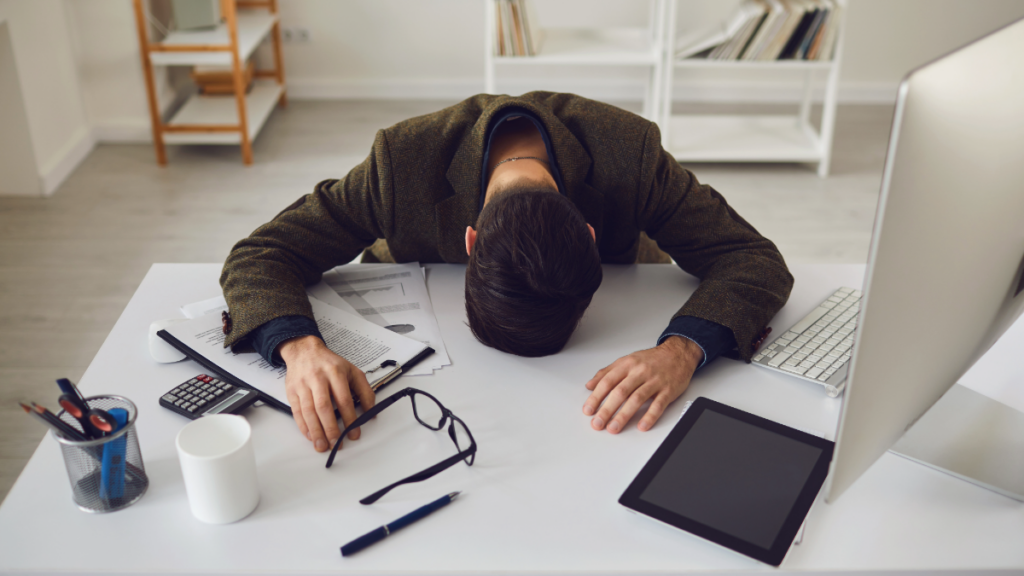Burnout is a thing. And if you think that it would never affect you, well, think again. Workplace stress is a common issue faced by employees across industries. A growing focus on wellness initiatives in the corporate world is making a positive impact. But it is reaching wide and far enough? The jury is still out.
More companies are recognising the importance of creating supportive environments that promote mental and physical well-being. By encouraging practices such as mindfulness, healthy time management, and stress-reducing techniques, organisations are not only enhancing employee satisfaction but also reducing absenteeism, a significant cost driver for businesses.
1. Mindfulness and Meditation
Mindfulness and meditation have become essential components of workplace wellness programmes, thanks to their proven ability to reduce stress and improve focus. Mindfulness encourages individuals to stay present and fully engaged in the current moment, which can help mitigate anxiety about work deadlines or unresolved issues. Regular practice of mindfulness can lead to increased emotional regulation, allowing employees to better manage stressful situations.
Many companies are now offering mindfulness workshops, guided meditation sessions, and even mindfulness apps to employees as part of their wellness offerings. For example, apps like Headspace and Calm provide daily meditation guides specifically tailored for stress relief and focus, making these practices accessible throughout the workday. Studies show that even just a few minutes of daily mindfulness can lead to significant reductions in stress, and improvements in cognitive function and emotional resilience.
Meditation, which often accompanies mindfulness practices, has also been shown to improve attention span, memory, and overall well-being. It can help lower cortisol levels (the hormone associated with stress) thereby reducing symptoms of anxiety and promoting better sleep. Research from Harvard Medical School found that regular meditation can physically alter the brain, particularly the regions related to memory, empathy, and self-awareness. These benefits make it a powerful tool for maintaining mental clarity in a demanding work environment
2. Time Management
Effective time management is another critical factor in managing workplace stress. It allows employees to break their workload into manageable tasks, reducing the sense of overwhelm that often comes with a busy schedule. Time management techniques like the Pomodoro Technique and time blocking have become popular methods to achieve this balance.
The Pomodoro Technique, developed by Francesco Cirillo, involves breaking work into 25-minute intervals (called “Pomodoros”), followed by a 5-minute break. After four Pomodoros, a longer break is taken. This method encourages sustained focus while also incorporating regular breaks, which are essential for preventing burnout. By breaking tasks into smaller chunks, employees are less likely to feel overwhelmed and more likely to maintain productivity throughout the day.
Time blocking, another highly effective technique, involves scheduling specific periods for different tasks throughout the day. This structured approach allows employees to allocate dedicated time for deep work without interruptions, helping them stay on track and meet deadlines. Time blocking is particularly useful for prioritising tasks, ensuring that high-priority or complex tasks are addressed when energy levels are at their peak. Both of these strategies are simple to implement and have been shown to enhance focus, reduce procrastination, and foster a sense of accomplishment
3. Breaks and Downtime
Taking regular breaks throughout the workday is essential for maintaining mental clarity and reducing stress. Studies have shown that the brain can only maintain optimal focus for short periods (typically 90 minutes) before requiring a rest to reset. By taking breaks, even short ones, employees can recharge their energy and return to tasks with renewed focus.
Breaks that involve physical activity, like a quick walk or stretching exercises, are particularly effective at reducing stress and improving circulation. In addition, short breathing exercises like the 4-7-8 technique, where you inhale for 4 seconds, hold the breath for 7 seconds, and exhale for 8 seconds, can help calm the nervous system and lower cortisol levels. Deep breathing triggers the body’s relaxation response, helping to reduce feelings of anxiety and improve concentration.
Longer, more deliberate downtime, such as taking a lunch break away from the desk, can help reset the mind and prevent burnout. Stepping away from work allows the brain to shift out of “work mode,” promoting creativity and problem-solving when employees return to their tasks. Incorporating these practices into the daily routine not only lowers stress but also supports sustained productivity over the long term.
Incorporating mindfulness, time management, and regular breaks into the workday can significantly reduce stress and boost overall productivity, leading to a healthier and more engaged workforce.
The Impact of Wellness on Productivity

Organisations that focus on employee well-being often report improved productivity and reduced absenteeism. Workplace wellness programmes that address both physical and mental health can create lasting changes in employee behaviour, encouraging healthier lifestyles. For example, initiatives that promote healthy eating, regular exercise, and stress management have been shown to reduce illness-related absences and improve overall engagement at work.
One report highlighted that mental health-related absenteeism costs UK employers up to £51 billion annually. Furthermore, presenteeism (when employees come to work but are not fully functioning due to stress) can also be a costly issue, with some estimates putting its cost at an additional £15 billion each year. When companies invest in wellness programmes, the return is clear: for every £1 spent on mental health support, businesses see an average of £5 in return due to increased productivity and lower absenteeism rates.
The Financial Toll of Absenteeism
Workplace absenteeism is a growing concern, costing the UK economy billions each year. In 2020 alone, mental health issues, including stress, accounted for around £14 billion in lost productivity. As companies continue to struggle with absenteeism, it’s becoming clear that investing in wellness programmes is not just a moral imperative but also a financially sound decision.
Organisations that offer comprehensive support, whether through mindfulness classes, stress management workshops, or time management training, are helping to reduce the frequency of absenteeism while promoting a healthier, happier workforce.
Managing work stress is critical for both employee well-being and organisational success. By implementing effective strategies such as mindfulness, better time management, and regular breaks, companies can help reduce stress levels, boost productivity, and mitigate the high costs of absenteeism.

